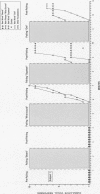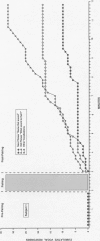Abstract
The vocal behavior of five children was recorded and analyzed during pre- and post-pairing conditions. Between these conditions there was a pairing condition where a target sound, word, or phrase was paired with an established form of reinforcement (e.g., tickling). In the first experiment all of the children emitted the targeted responses during the post-pairing condition. The results showed that the children acquired new vocal and verbal responses by pairing neutral stimuli with established forms of conditioned or unconditioned reinforcement. Perhaps the most significant aspect of these results was that new vocal responses were acquired by the children without the use of direct reinforcement, echoic training, or prompts. In the second experiment several parameters of the pairing procedure were examined. The results of the two experiments have implications for the analysis of native language acquisition, and for the development of language intervention procedures for individuals who fail to acquire language.
Full text
PDF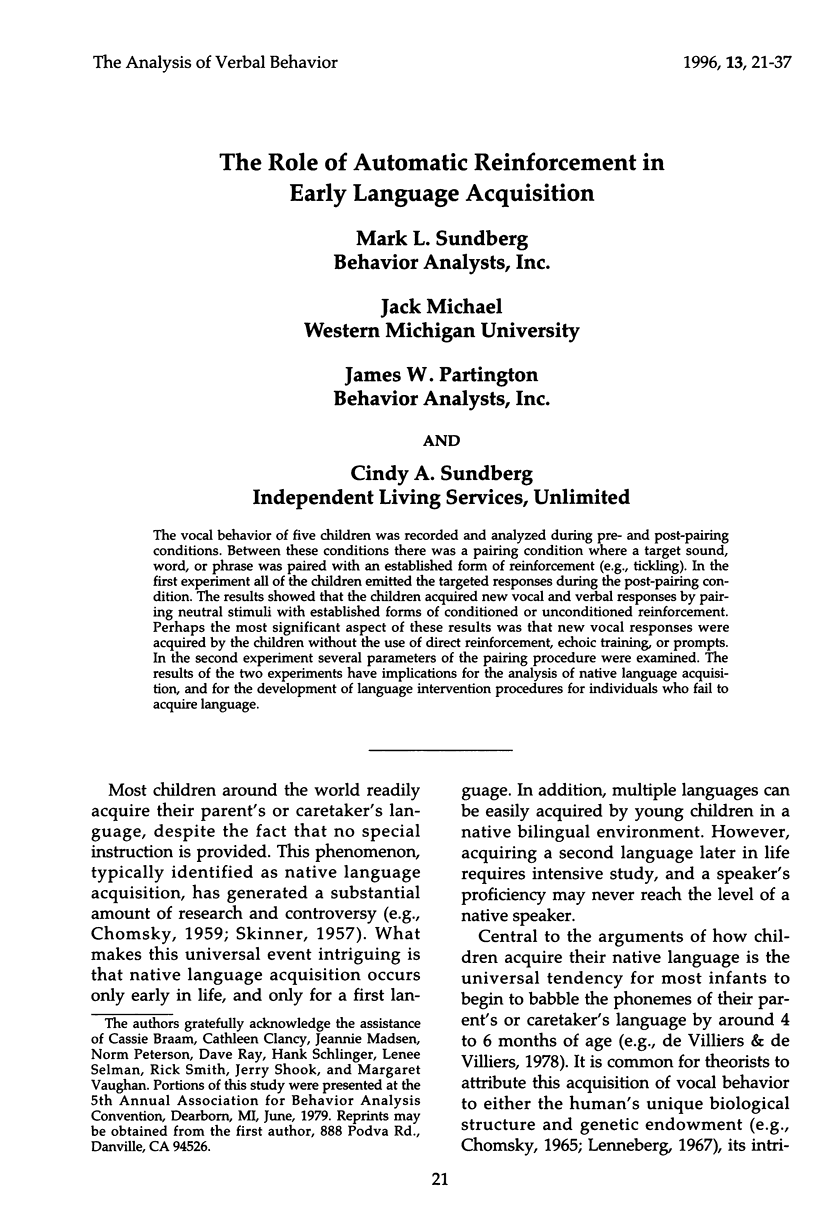
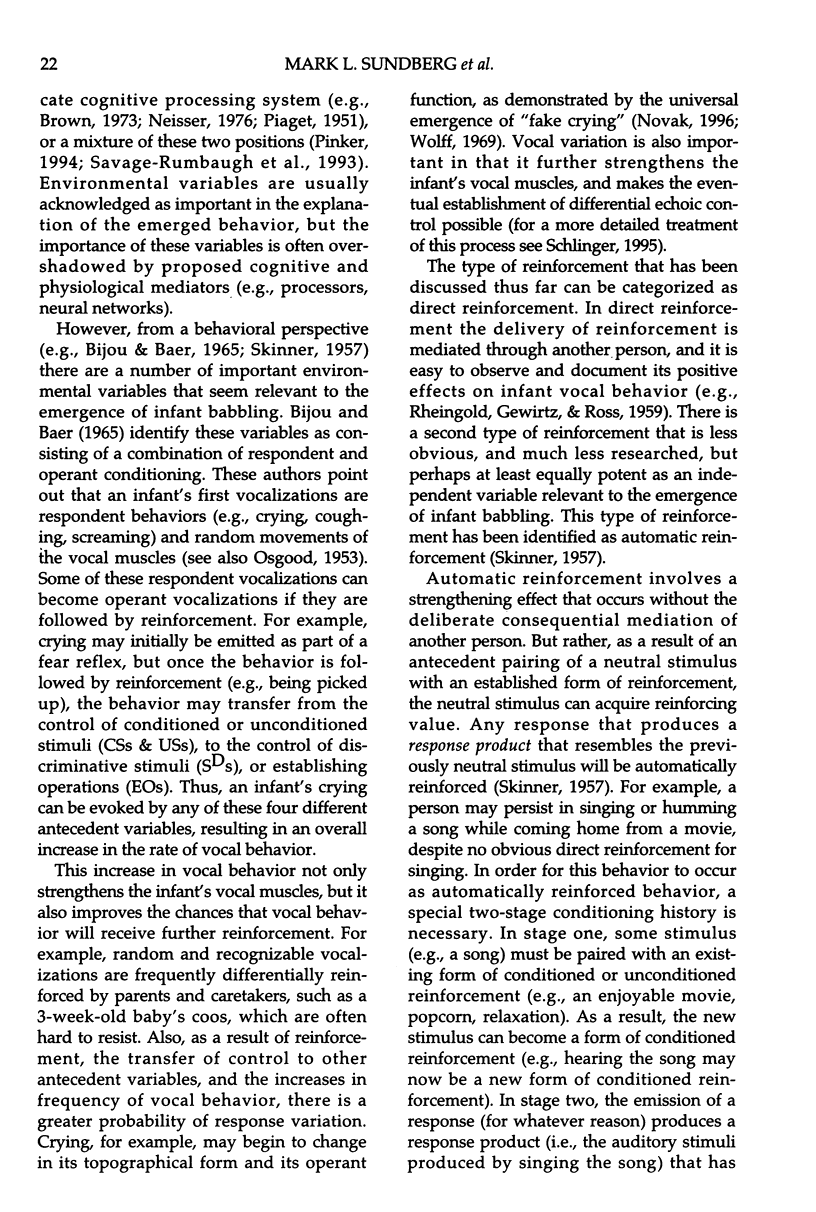
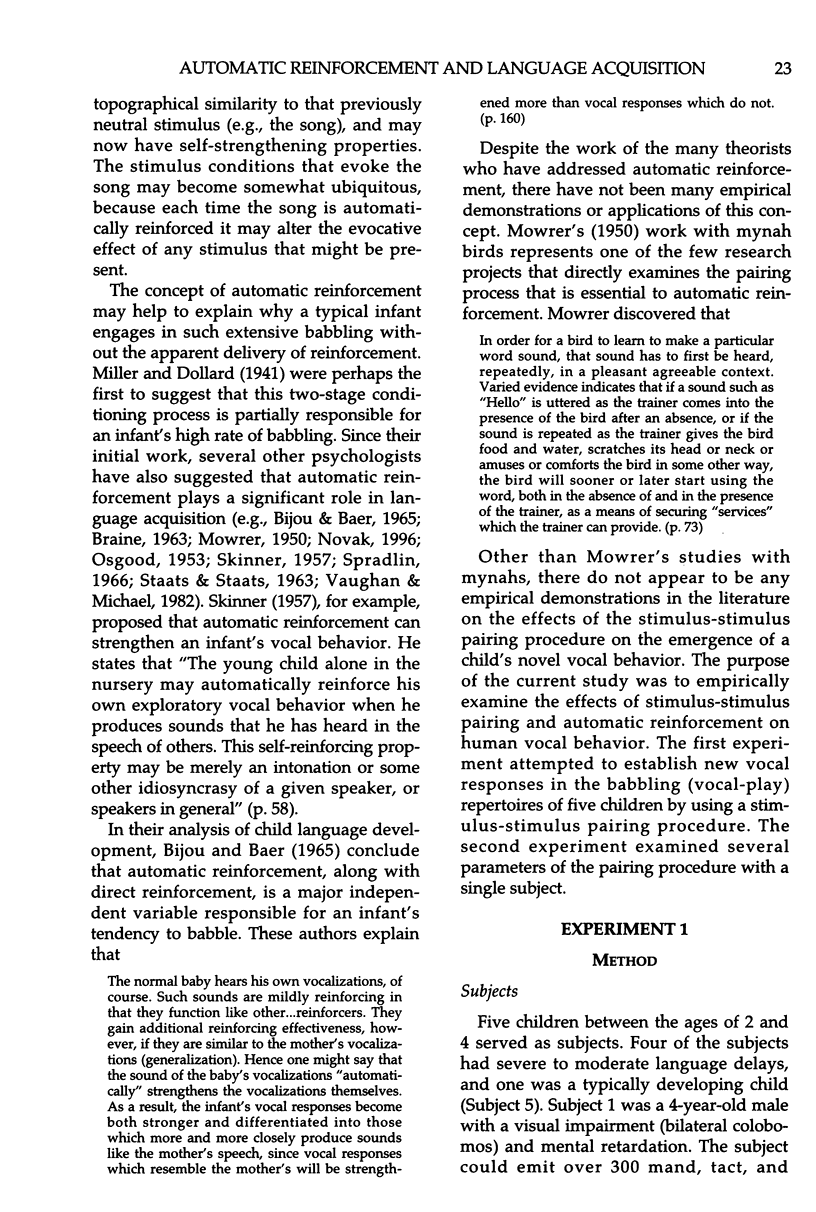
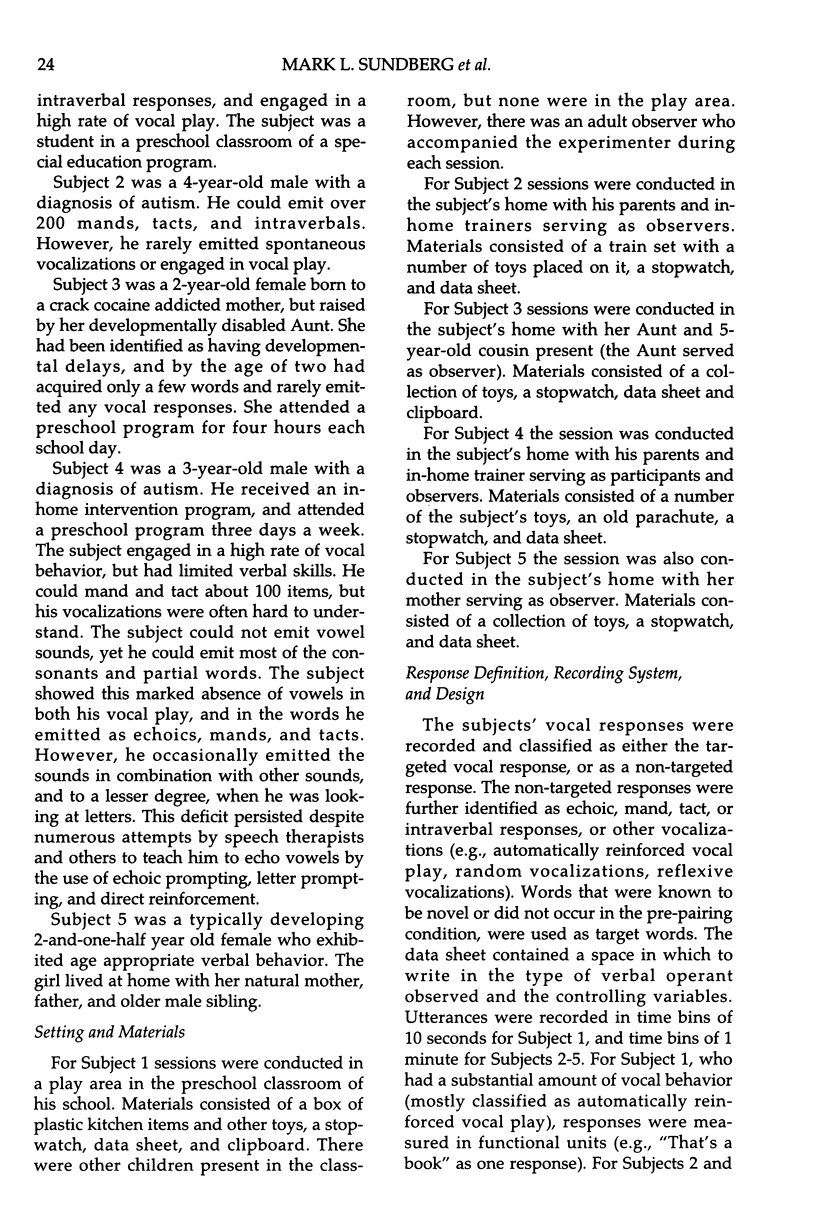
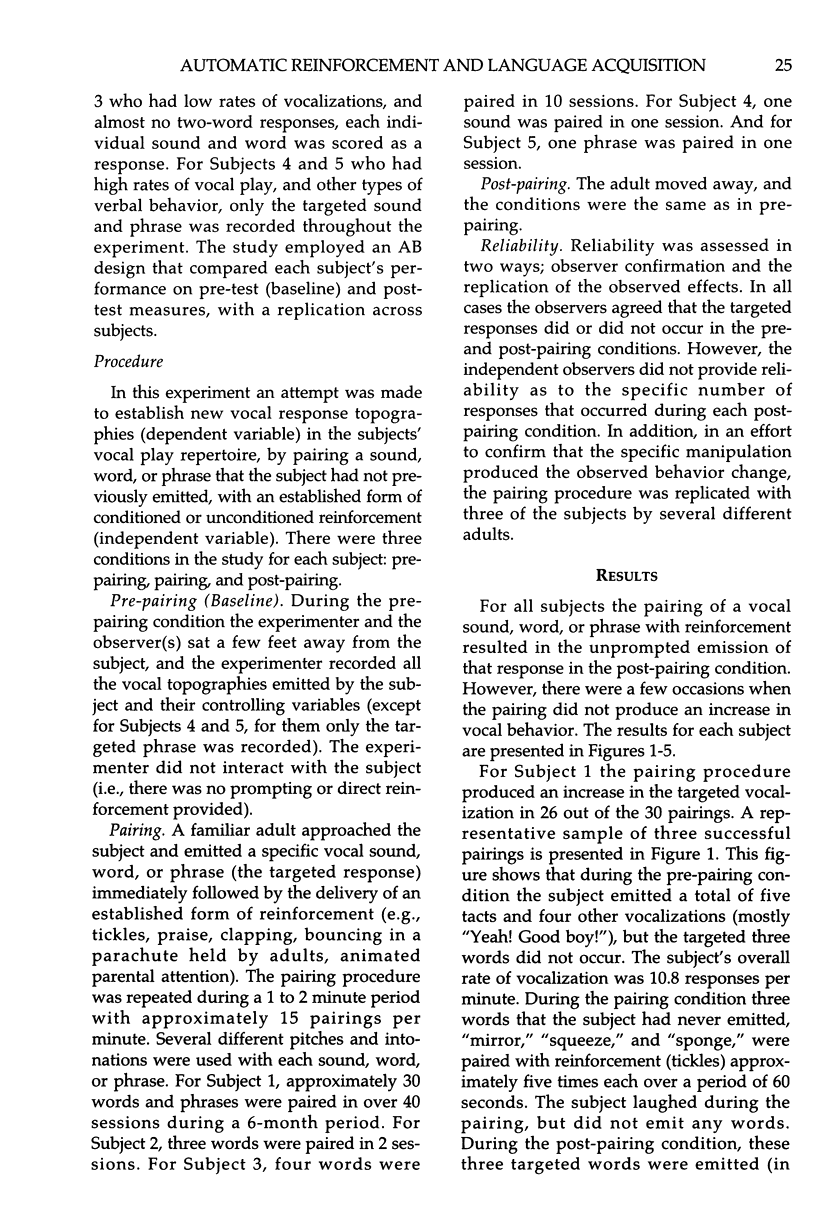
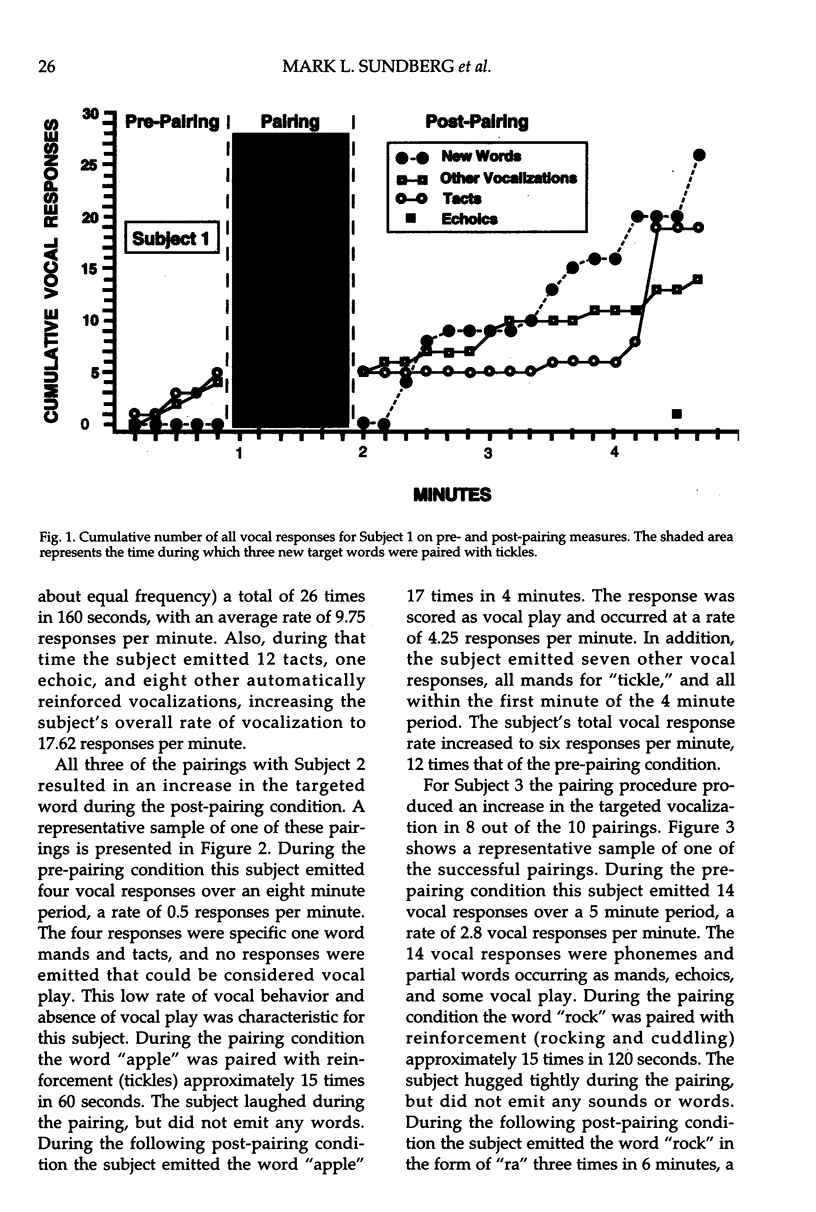
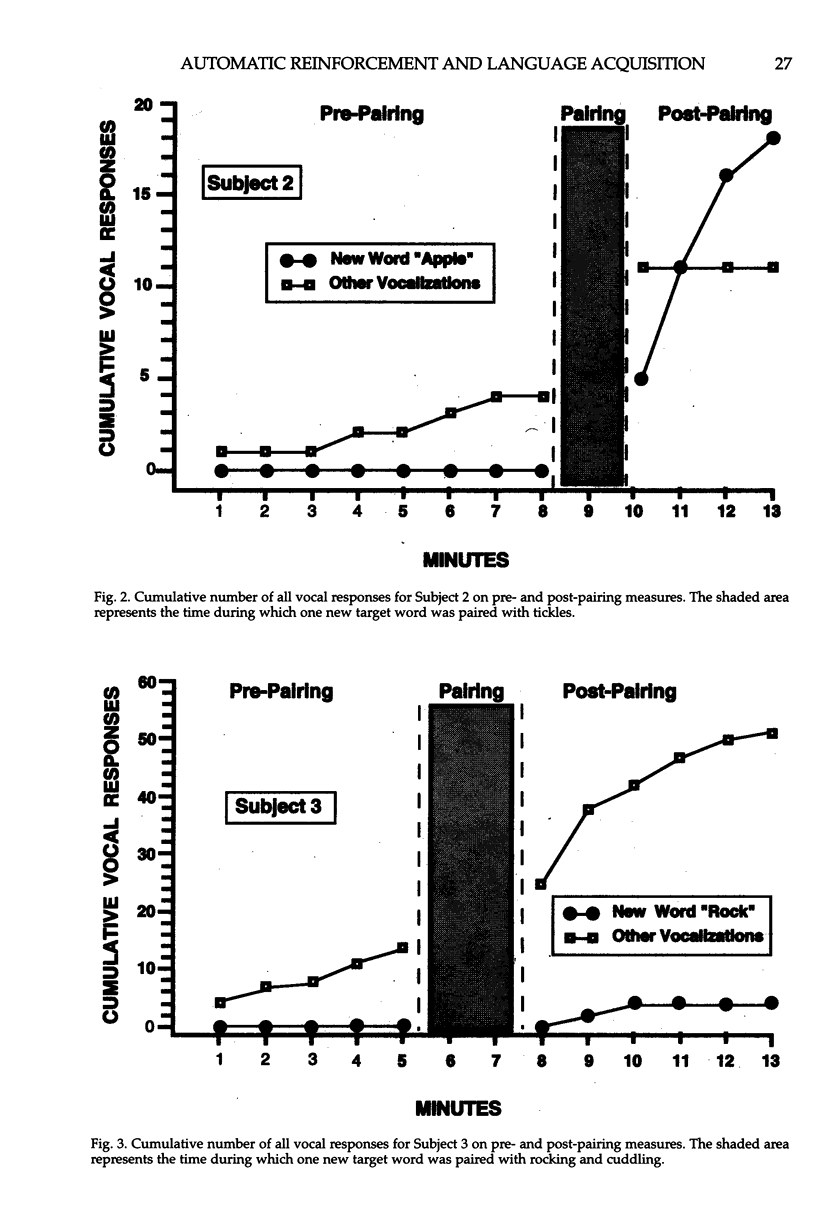
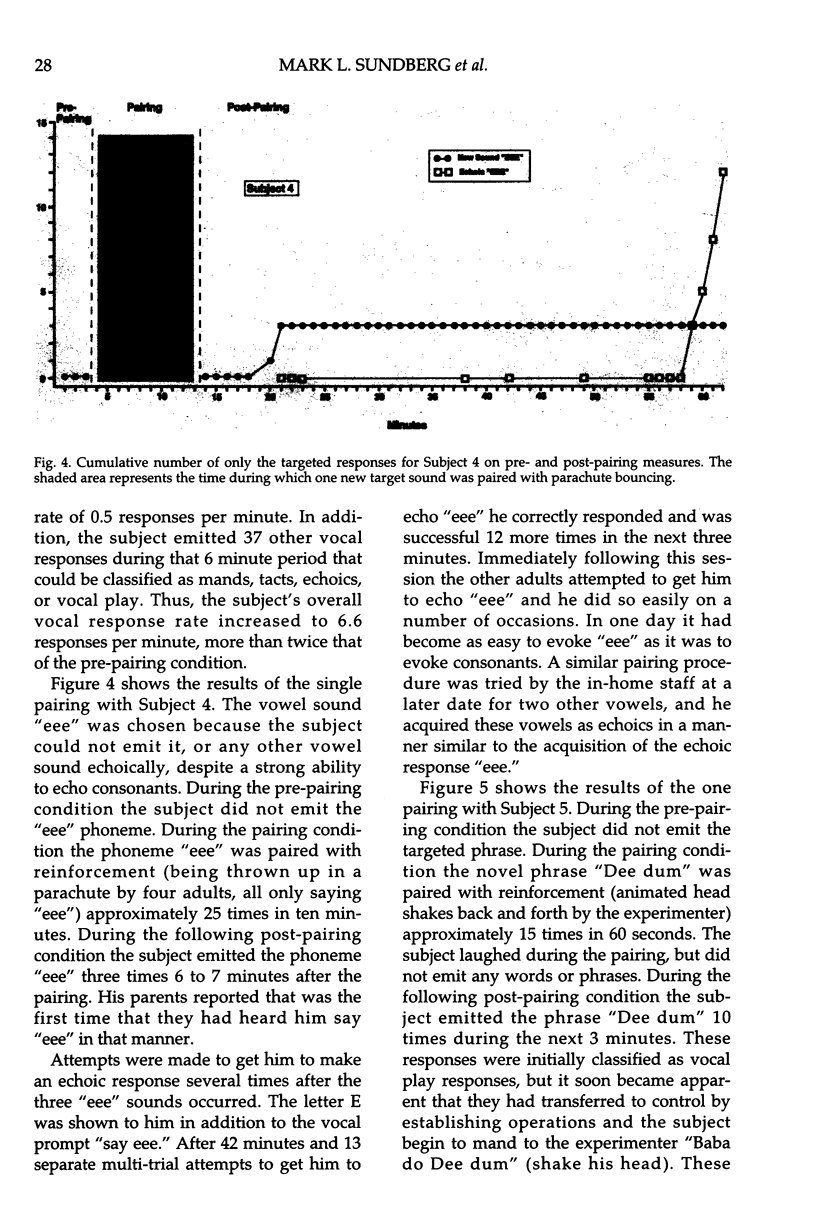
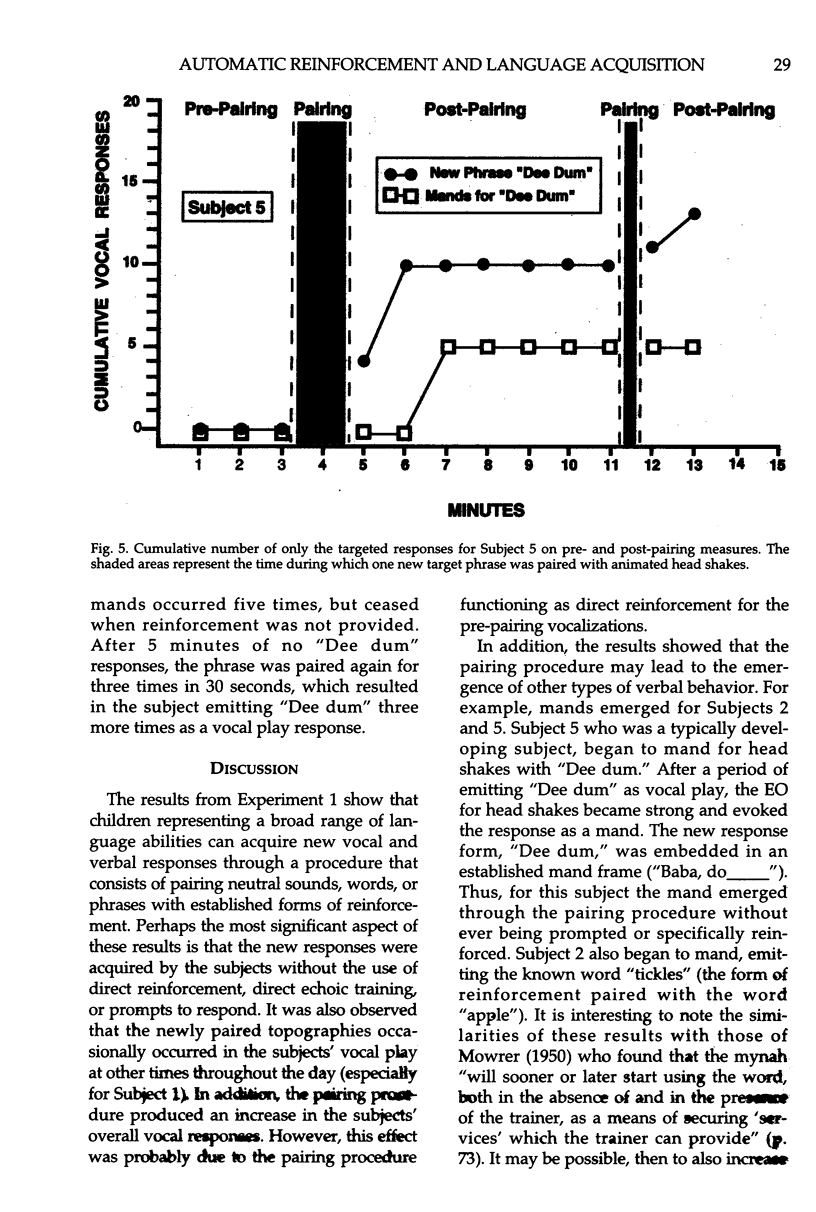
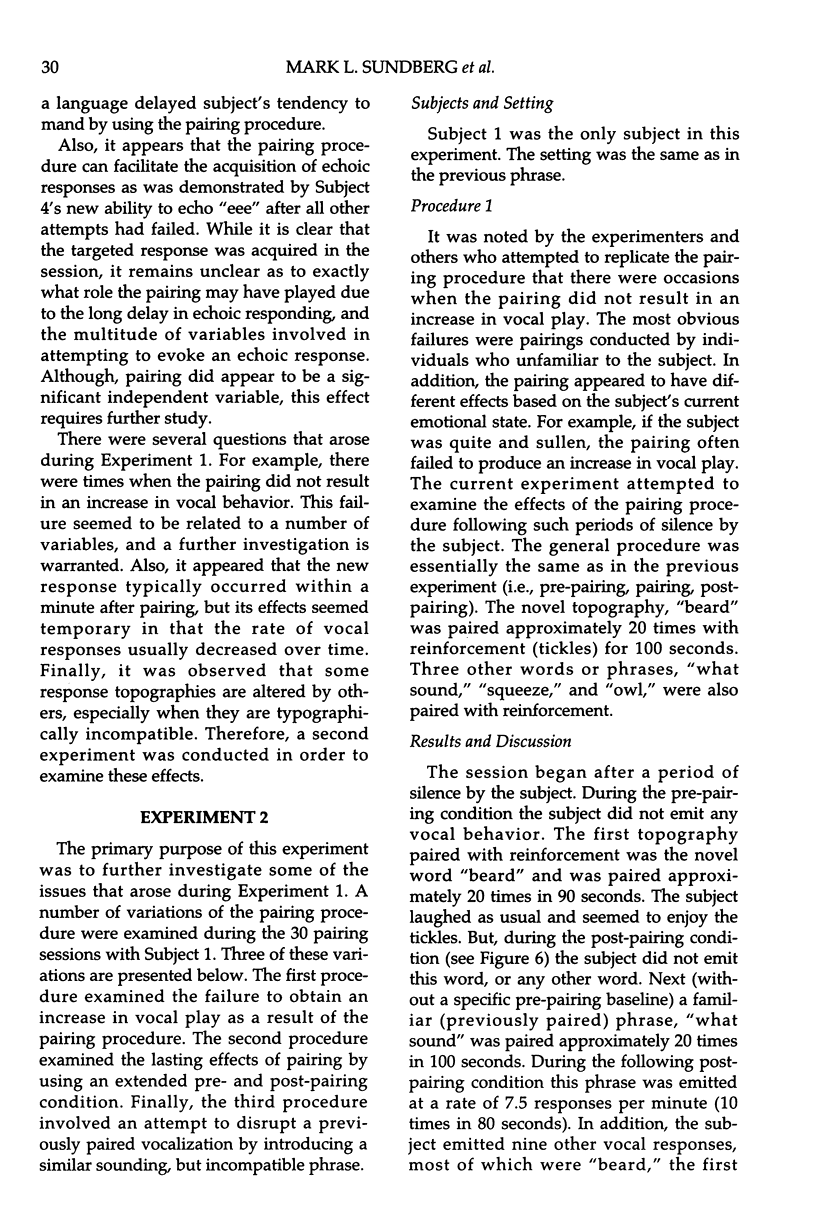
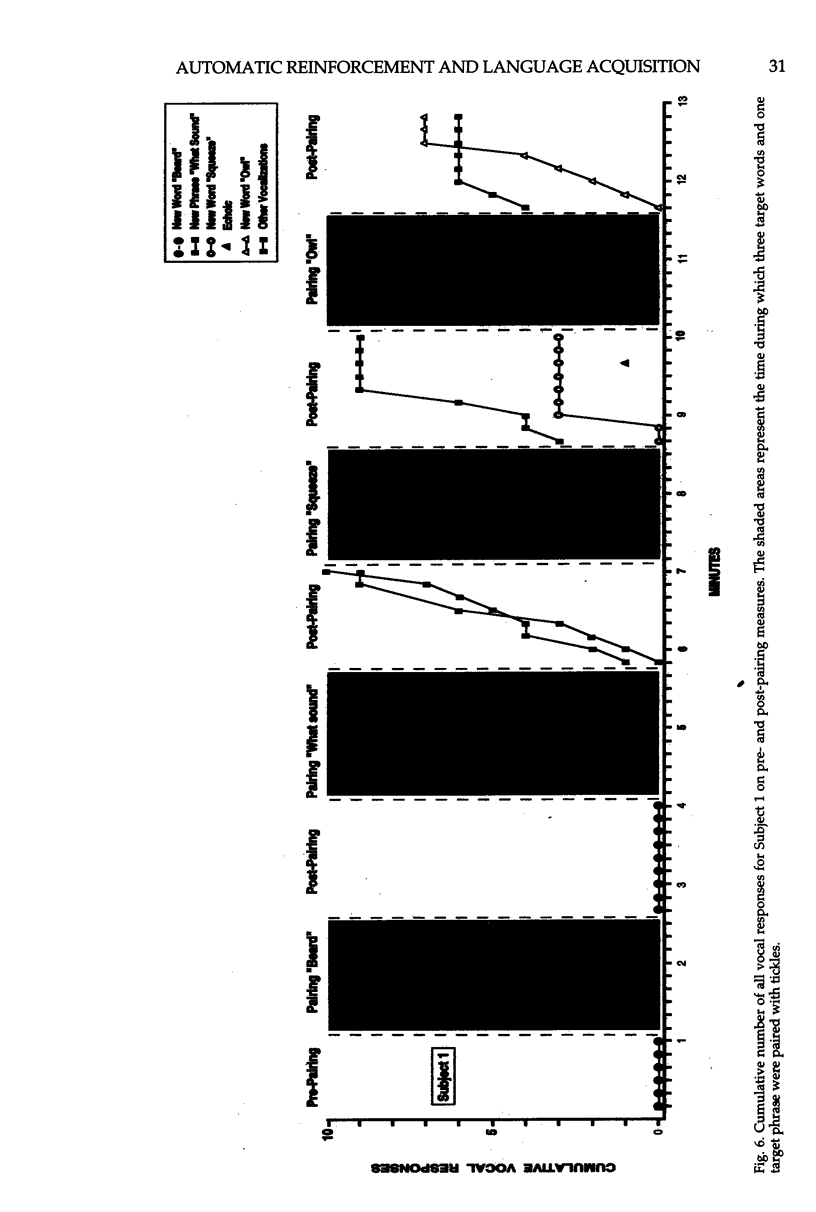
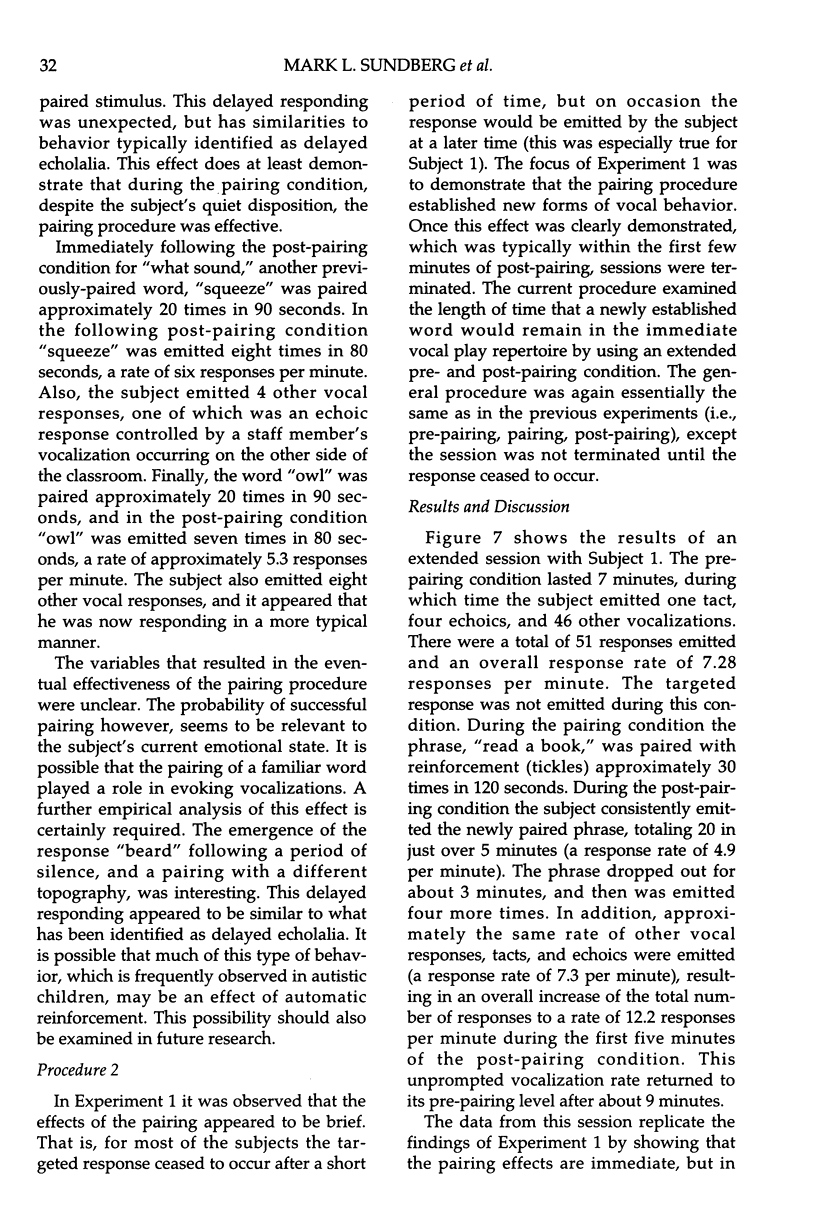
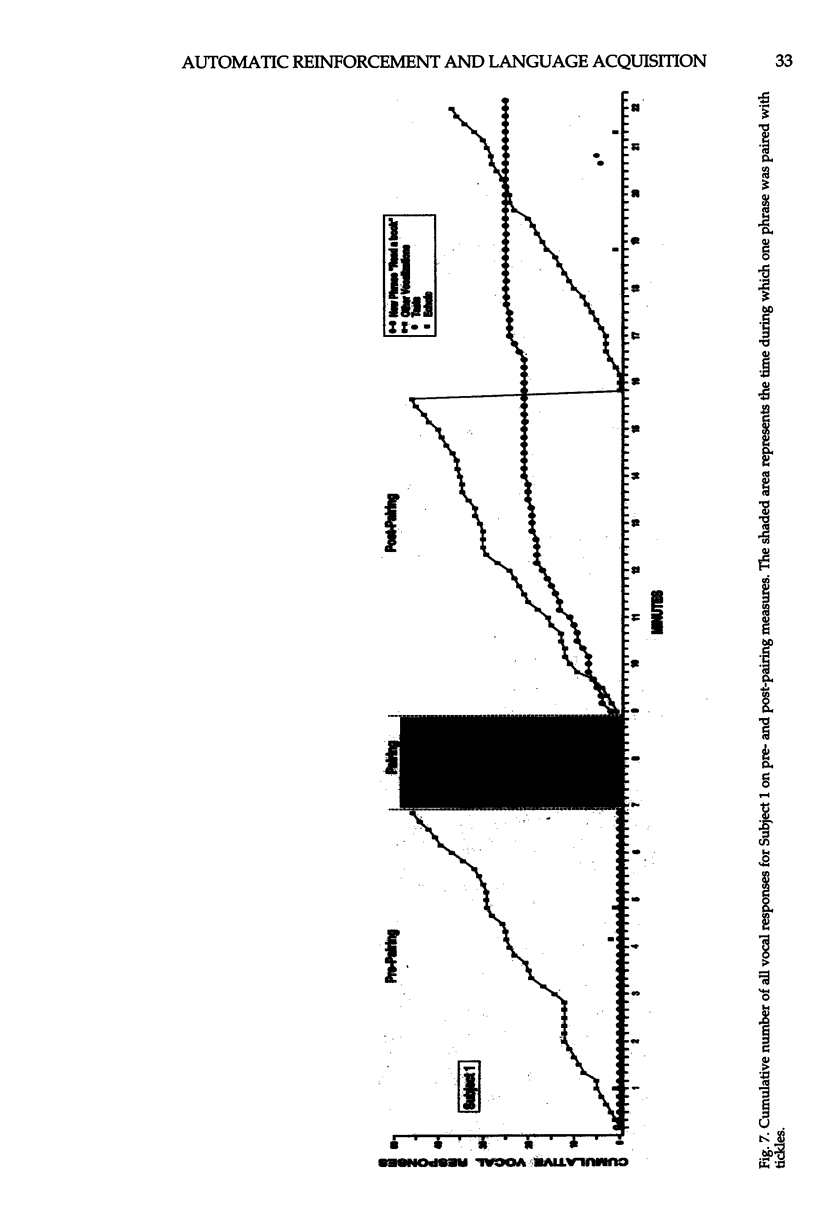
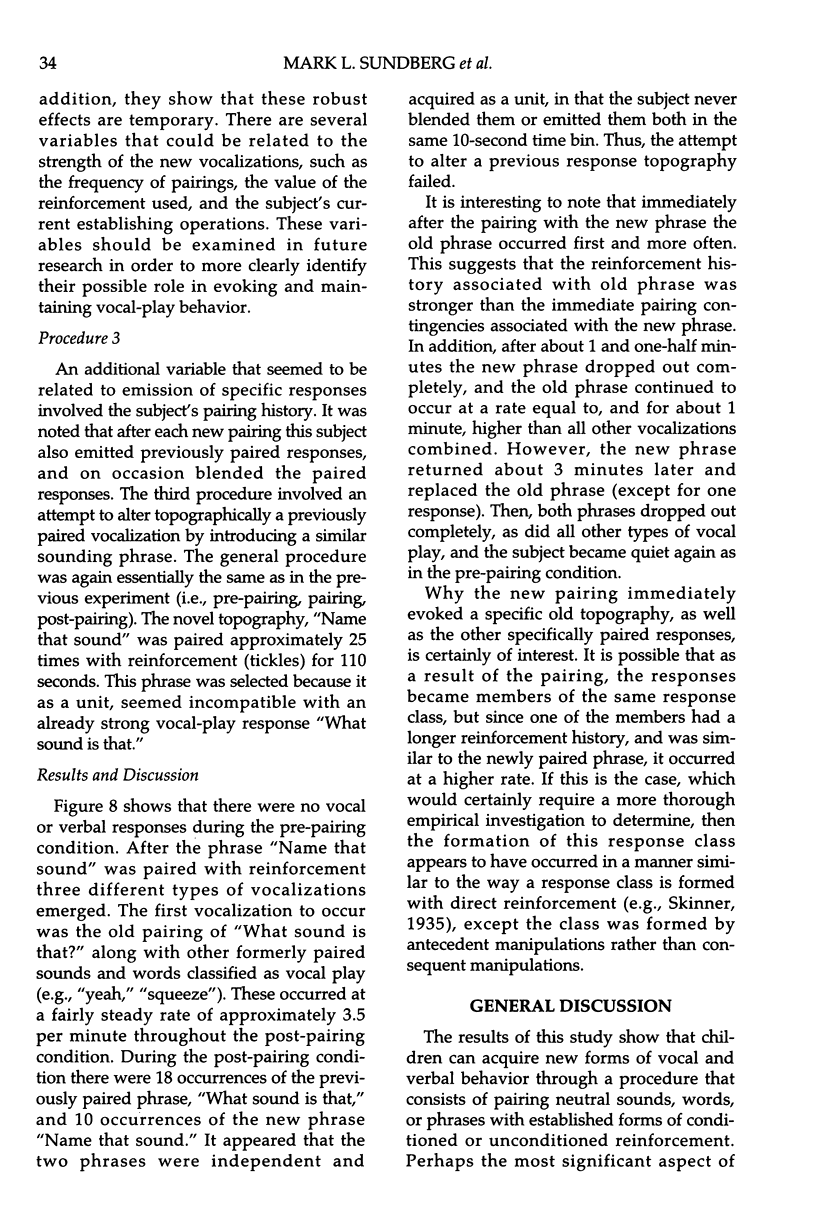
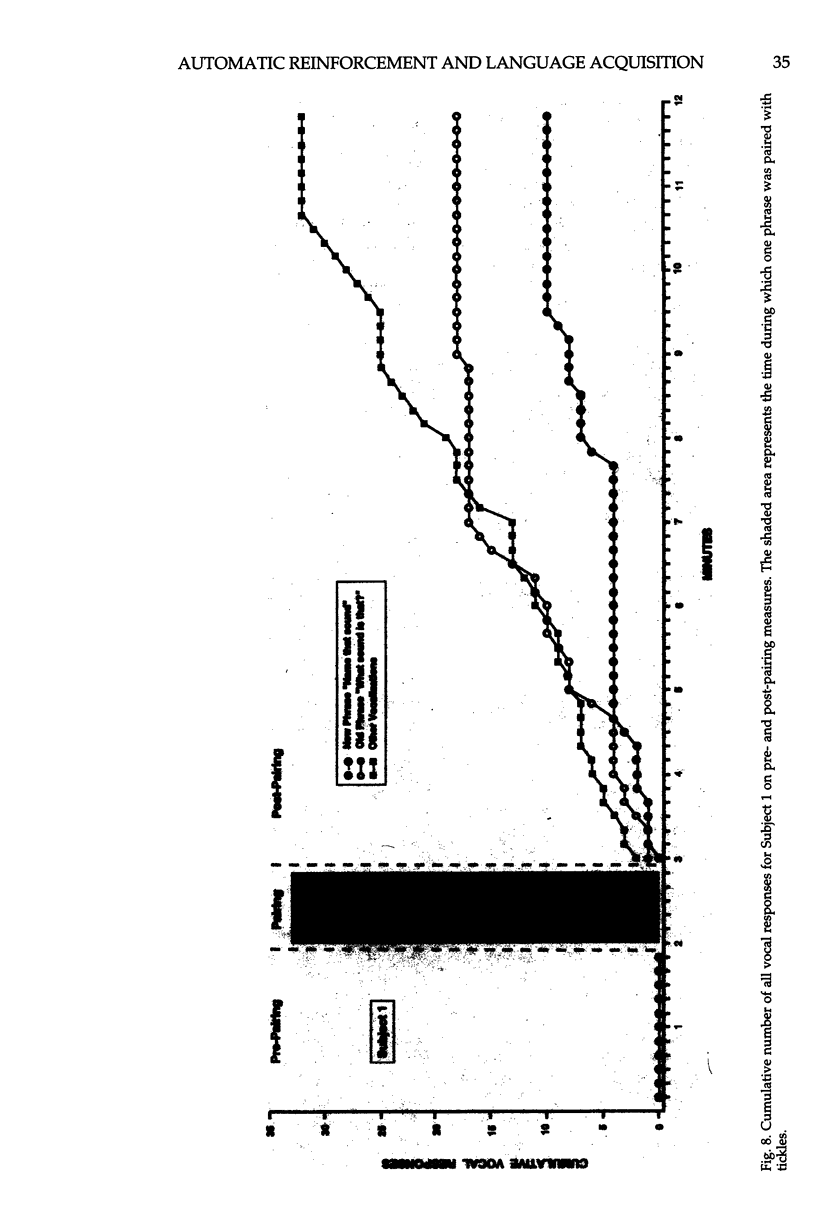
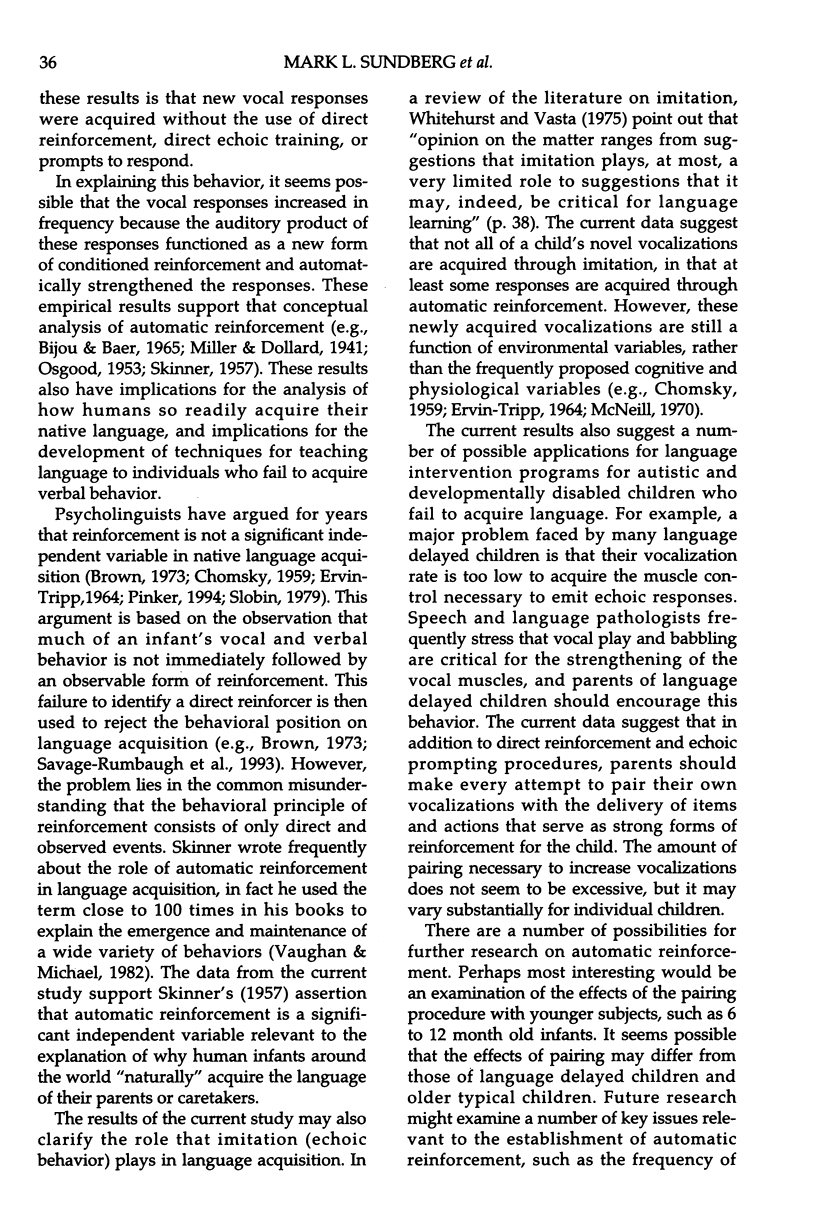
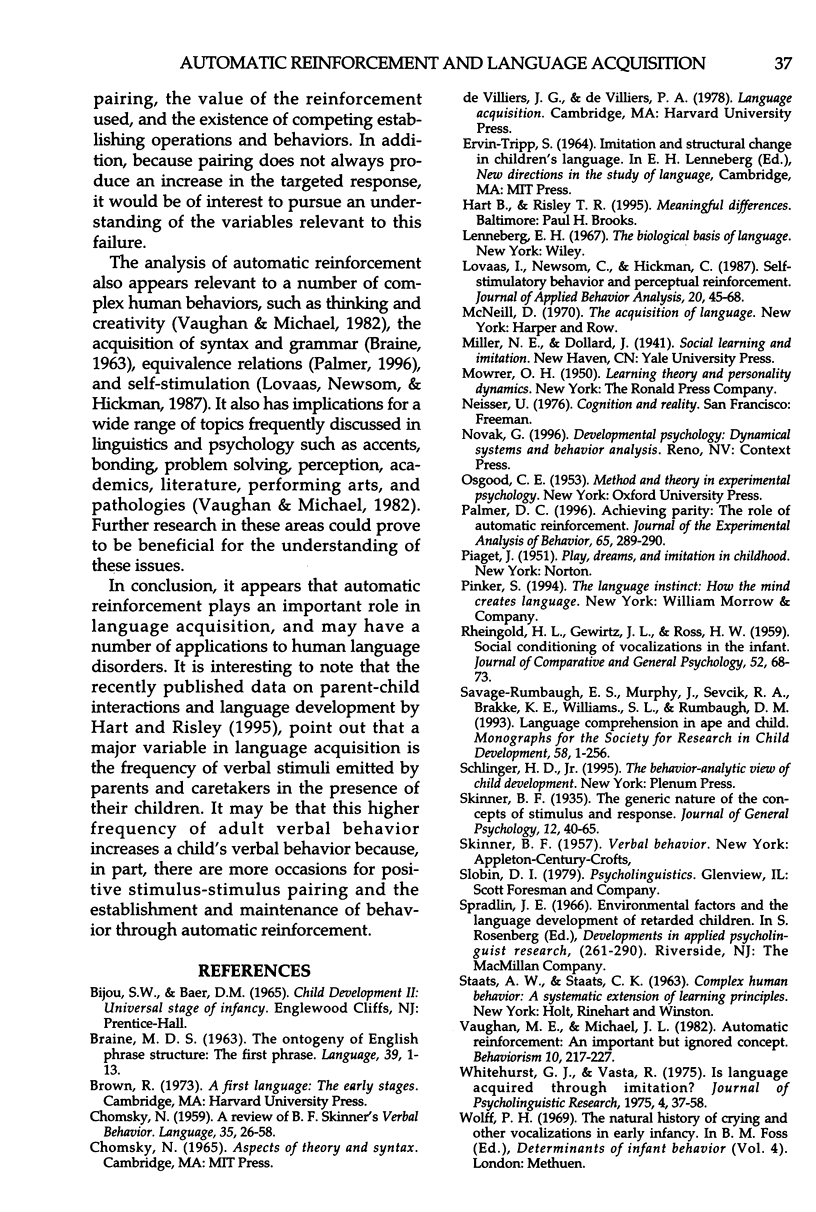
Images in this article
Selected References
These references are in PubMed. This may not be the complete list of references from this article.
- Lovaas I., Newsom C., Hickman C. Self-stimulatory behavior and perceptual reinforcement. J Appl Behav Anal. 1987 Spring;20(1):45–68. doi: 10.1901/jaba.1987.20-45. [DOI] [PMC free article] [PubMed] [Google Scholar]
- Palmer D. C. Achieving parity: The role of automatic reinforcement. J Exp Anal Behav. 1996 Jan;65(1):289–290. doi: 10.1901/jeab.1996.65-289. [DOI] [PMC free article] [PubMed] [Google Scholar]
- RHEINGOLD H. L., GEWIRTZ J. L., ROSS H. W. Social conditioning of vocalizations in the infant. J Comp Physiol Psychol. 1959 Feb;52(1):68–73. doi: 10.1037/h0040067. [DOI] [PubMed] [Google Scholar]








